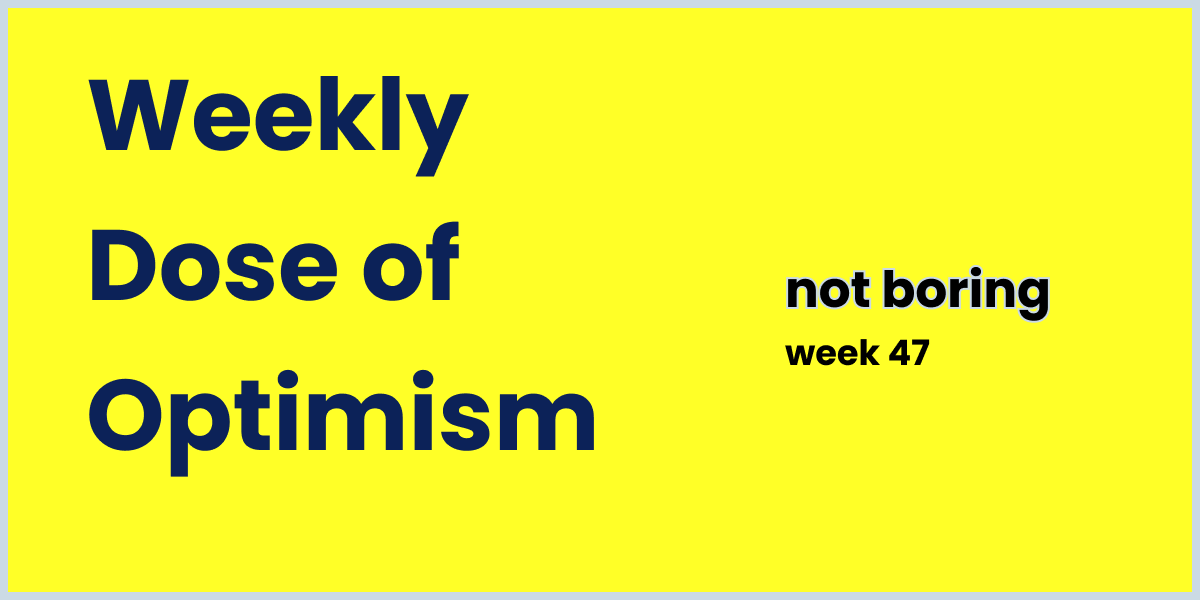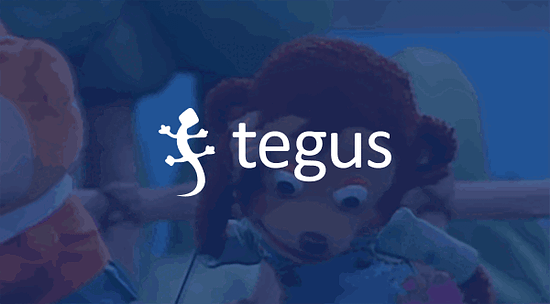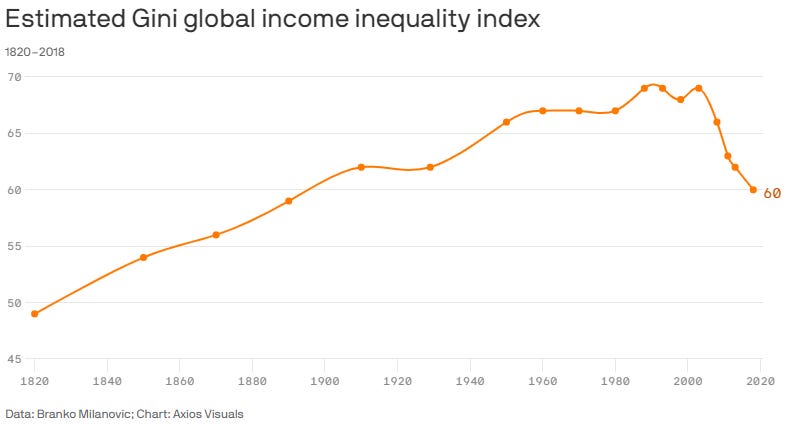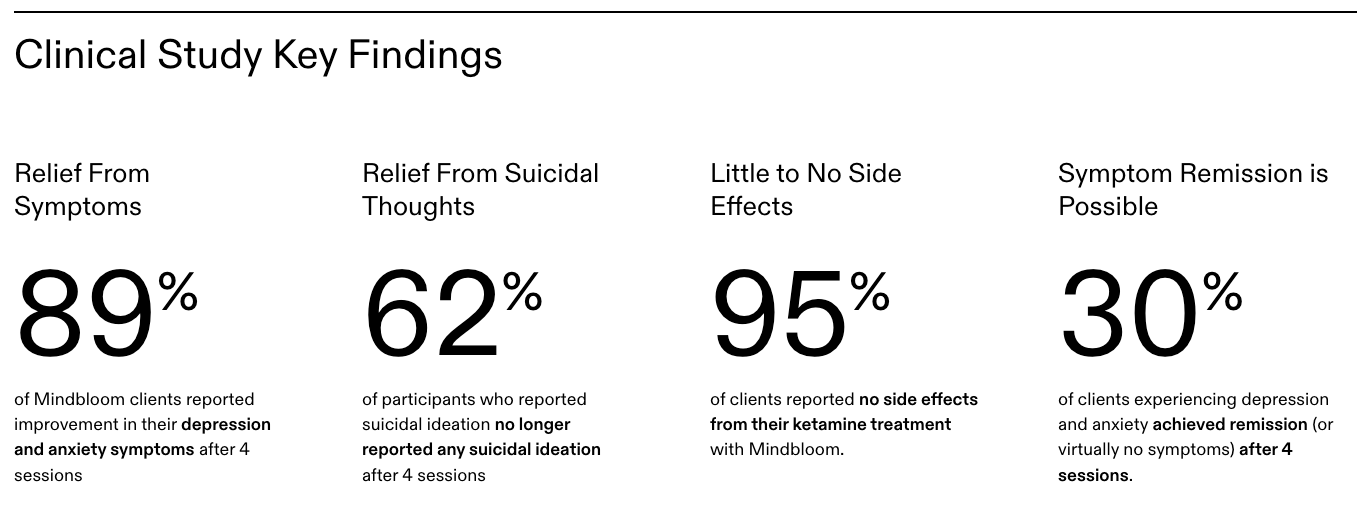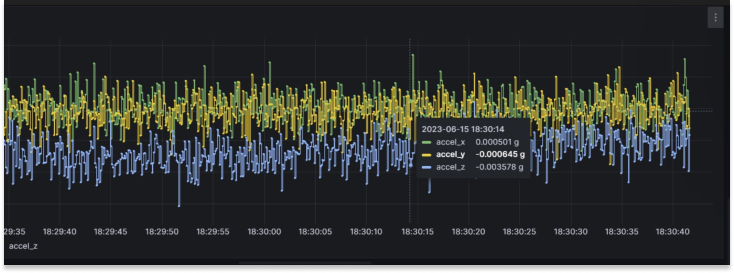Not Boring by Packy McCormick - Weekly Dose of Optimism #47
Weekly Dose of Optimism #47Quantum Computing, Decreasing Inequality, Ketamine, Building Budgets, Bio x Hackathon, Varda LaunchHi friends 👋, Happy Friday and welcome back to our 47th Weekly Dose of Optimism. I don’t know if the world keeps producing optimistic stuff because it knows we need content for this weekly newsletter or if we just have a classic case of Baader-Meinhof on our hands. But either way, the world keep producing. And we’ll keep writing about it. Let’s get to it. The Weekly Dose is brought to you by... Tegus Spend your best time making bold investment decisions– not hunting for elusive information. Tegus unites insights from credible experts with in-depth financial data to give you fast, powerful perspectives. Are you ready to go fast, build conviction, and outperform the market? Unlock the power of Tegus with a free trial. (1) IBM quantum computer passes calculation milestone Davide Castelvecchi for Nature
What if I told you that IBM was well-positioned for the next major technology wave? You’d probably laugh me off with some quip about Watson. Which is fair — IBM was early to AI and majorly dropped the ball, at least from a commercialization standpoint. But we’re not talking about Watson. We’re not even talking about AI. We’re talking about quantum computing. Quantum computing, a type of computation that utilizes quantum mechanics principles like superposition and entanglement to perform complex calculations at speeds that are significantly faster than traditional computing, holds promise for advancing fields such as AI, cryptography, optimization, simulation, and drug discovery. Quantum computers have the potential to outperform classical supercomputers exponentially, but the prevalence of 'quantum noise' leads to high error rates, currently limiting their practical applications. So much of recent quantum computing research is dedicated to reducing this error rate. In 2019, Google came out and claimed their quantum computer could outperform classical machines — although only on niche calculations with no practical applications. Now IBM, say they have evidence that quantum computers will soon beat ordinary ones at useful tasks, such as calculating properties of materials or the interactions of elementary particles. In a new paper, IBM claims their “error-mitigating techniques” managed to work with quantum noise to produce reliable results. Essentially, because each quantum calculation is both unreliable and really fast, they can re-run the calculation a bunch of times, amplifying the noise very precisely in each calculation in order to extrapolate back to what noise-less results might have been. In this case, per the NYT, “They used a quantum processor with 127 qubits to simulate the behavior of 127 atom-scale bar magnets — tiny enough to be governed by the spooky rules of quantum mechanics — in a magnetic field. That is a simple system known as the Ising model, which is often used to study magnetism. This problem is too complex for a precise answer to be calculated even on the largest, fastest supercomputers.” It’s a demonstration of real “utility” in quantum computing, another one of those fields that seems to perpetually sit years away from usefulness. We’re not quantum physicists, and it remains to be seen how long it is before scientists and engineers are routinely using quantum computers to do real things, but with Cruise roaming the streets of SF, Apple’s VisionPro announced, and now this IBM breakthrough, a lot of those “always decades away” technologies sure seem to be coming to fruition this year. Branko Milanovic for Foreign Affairs
Would you believe me if I told you that global inequality is at its lowest level in nearly 150 years? If not, I wouldn’t blame you. After all, the headlines and social movements that fill those headlines would lead you to believe otherwise. Trumpism. Brexit. The Yellow Vest Movement in France. Black Lives Matter. Occupy Wall Street. The Global Financial Crisis. The list goes on and on. All stories — at their core — about inequality. “Global inequality,” which refers to income disparity between all citizens of the world at a given time, adjusted for the differences in prices between countries, is commonly measured by the Gini coefficient. 0 = total equality and 100 = a single individual has all the wealth. All of the stories above are at the level of the nation-state, where inequality is real and persistent. At to be sure, there is some level of nation-state interconnectedness. But if you zoom out to a global scale, the world is growing more equal than it has been for over 100 years. The decrease in global inequality over the past two decades is thanks, in large part, to the economic rise of China. The question is whether or not this downward trend can continue. China, now the world’s second most populace country, has already made its dent. And there are questions as to whether or not India, currently the world’s most populace country, can achieve the same growth story that China did in the early 21st century. Our obvious hope is yes — and new technologies like quantum computing, AI, affordable and effective medicines — will all play a role in driving down the Gini coefficient over the coming decades. (3) Not Boring Founders: Dylan Beynon, Mindbloom
Packy was joined on Not Boring Founders by Dylan Beynon, the founder and CEO of Mindbloom. Mindbloom’s mission is to transform lives today, to transform the world tomorrow through psychedelic medicine. And it’s starting with ketamine therapy for patients with depression and anxiety. Mindbloom’s traction is part of a larger wave of research, commercialization, and general de-stigmatization currently happening in psychedelics. And this movement is catching on for a good reason: psychedelics are now a proven, effective therapeutic for a number of ailments. For example, Mindbloom’s particular protocol of ketamine therapy has been proven to be 40% more effective in treating depression and anxiety than SSRIs, with immediate results and few (if any) side effects. More research is certainly needed, but the results are promising particularly for SSRI non-responders. Packy talked with Dylan about why he started Mindbloom, how Ketamine therapy works, where the company and space are headed, and what the world looks like as access to psychedelic medicine expands. (4) The US Factory Boom Is a Golden Opportunity for Green Job Training 🔒 Nathaniel Bullard for Bloomberg
IT’S TIME TO BUILD FOR THE BUILDERS. The U.S., in a coldish war with China, is racing to build up its manufacturing capacity and is spending hundreds of billions of dollars to do so. In fact, manufacturers construction spending has more than doubled year of year to both meet current demand and satisfy anticipated future demand for for things like semiconductors, electric vehicles, batteries, and solar panels. And with all that money sloshing around, opportunity is plentiful. It’s a great time to be an engineer or an builder of climate friendly infrastructure, or real any high-skilled worker. And of course, with that type of money moving around, it’s a great time to be a middleman (consultant, certifier, etc.) sitting between government money and all those projects. At any rate, America is making a strong push at re-establishing itself as a manufacturing hub, at least for the products we deem important. That’s a good thing — it builds up the middle class and reduces our fragility and dependency. (5) Bio x Hackathon Winner: SVM Elliot here. There's a renaissance happening right now at the intersection of AI and biology. It's like the fields are designed for each other—technologies like high-throughput DNA sequencing are creating massive and complex datasets that take full advantage of the powerful AI models being created. Recently, our friends at Lux, Huggingface, Latch, and OpenBioML teamed up to host the Bio x Hackathon—where teams were given compute resources and a week to build a demo solving a useful problem in computational biology. The creativity and quality of the demos delivered on such a short time scale was amazing to see. If you want to dip your toes into the world of computational biology, check out this demo video from Erinc Merdivan's team that came in first place. Creating a prototype of unified protein embeddings in a week of work... what a time to be alive.  Bonus: Varda Successfully Launches On Monday, we wrote about Varda, the company that’s manufacturing drugs in space for use on earth to expand the economic bounds of humankind. Later that afternoon, Varda’s spacecraft went up on SpaceX’s Transporter-8 rocket and successfully deployed. There is now a drug factory orbiting our planet. Just yesterday, Varda confirmed that it’s “ready to do some manufacturing without one of the four fundamental forces of physics.” From here, Varda’s spacecraft will orbit the earth for about a month before making its crucial re-entry and landing in the Utah desert. We’ll keep you posted. Varda is easy to root for. It combines all of the things we love here at Not Boring. Hard problems. Declining cost curves. Flywheels. Biotech and space. And, of course, ambitious founders that are just crazy enough to launch a drug factory into space. That’s all for this week. We’ll be back in your inbox on Tuesday. Enjoy the weekend! Thanks for reading, -Dan +Packy |
Older messages
Varda: The Space Drug Factory
Monday, June 12, 2023
Expanding the Economic Bounds of Humankind, Starting Today
Blockchain Meets Bio
Monday, June 12, 2023
Elliot on the intersection of bits and atoms at Zuzalu
Weekly Dose of Optimism #46
Monday, June 12, 2023
Pirate Wires, Apple Vision Pro, Developer Productivity, Taurine, IT'S TIME TO AI
Weekly Dose of Optimism #45
Friday, June 2, 2023
Ketamine, Skeletal Editing, Dementia, Rwanda, AI Safety statement, Ezra
Ezra: The Quest to Kill Cancer
Thursday, June 1, 2023
A Sponsored Deep Dive on Early Detection as a Cure
You Might Also Like
🔮 $320B investments by Meta, Amazon, & Google!
Friday, February 14, 2025
🧠 AI is exploding already!
✍🏼 Why founders are using Playbookz
Friday, February 14, 2025
Busy founders are using Playbookz build ultra profitable personal brands
Is AI going to help or hurt your SEO?
Friday, February 14, 2025
Everyone is talking about how AI is changing SEO, but what you should be asking is how you can change your SEO game with AI. Join me and my team on Tuesday, February 18, for a live webinar where we
Our marketing playbook revealed
Friday, February 14, 2025
Today's Guide to the Marketing Jungle from Social Media Examiner... Presented by social-media-marketing-world-logo It's National Cribbage Day, Reader... Don't get skunked! In today's
Connect one-on-one with programmatic marketing leaders
Friday, February 14, 2025
Enhanced networking at Digiday events
Outsmart Your SaaS Competitors with These SEO Strategies 🚀
Friday, February 14, 2025
SEO Tip #76
Temu and Shein's Dominance Is Over [Roundup]
Friday, February 14, 2025
Hey Reader, Is the removal of the de minimis threshold a win for e-commerce sellers? With Chinese marketplaces like Shein and Temu taking advantage of this threshold, does the removal mean consumers
"Agencies are dying."
Friday, February 14, 2025
What this means for your agency and how to navigate the shift ͏ ͏ ͏ ͏ ͏ ͏ ͏ ͏ ͏ ͏ ͏ ͏ ͏ ͏ ͏ ͏ ͏ ͏ ͏ ͏ ͏ ͏ ͏ ͏ ͏ ͏ ͏ ͏ ͏ ͏ ͏ ͏ ͏ ͏ ͏ ͏ ͏ ͏ ͏ ͏ ͏ ͏ ͏ ͏ ͏ ͏
Is GEO replacing SEO?
Friday, February 14, 2025
Generative Engine Optimization (GEO) is here, and Search Engine Optimization (SEO) is under threat. But what is GEO? What does it involve? And what is in store for businesses that rely on SEO to drive
🌁#87: Why DeepResearch Should Be Your New Hire
Friday, February 14, 2025
– this new agent from OpenAI is mind blowing and – I can't believe I say that – worth $200/month
